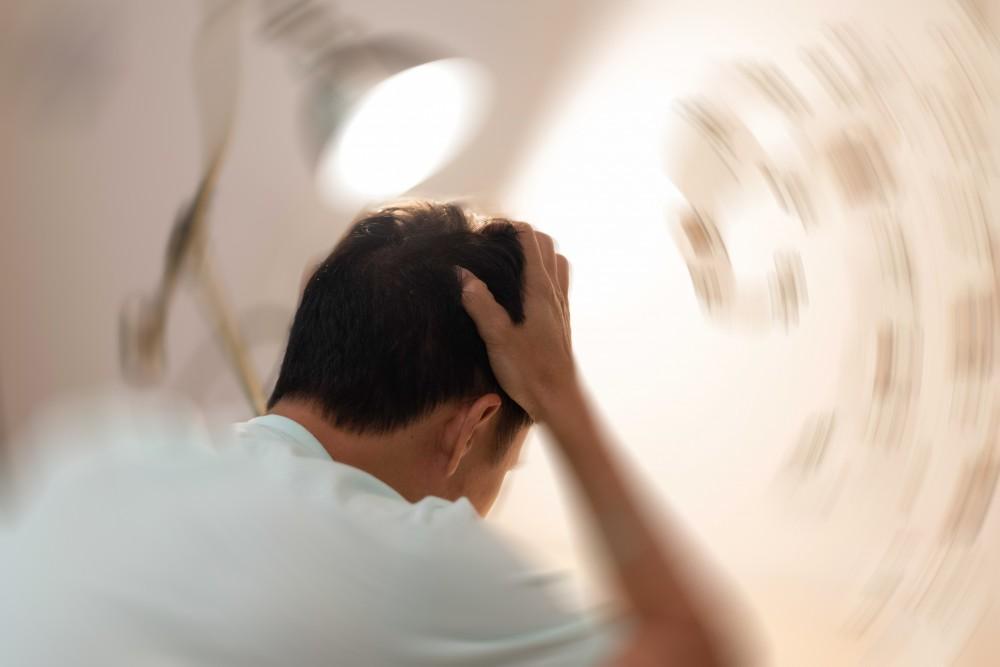
What Causes Vertigo (And What Can I Do About It)?

About 4 in 10 adult Americans experience vertigo at some point in their lives. If you belong to this group, it’s important to note that vertigo is a symptom, not a disorder itself. While generally occurring due to a problem with your vestibular system, the dizziness and balance issues associated with vertigo may come from head injuries, stroke, migraines or medication.
Signs of vertigo
When you have a sense of motion that doesn’t agree with what’s actually happening to your body, you have vertigo. You may also feel dizzy, unable to maintain balance or have both symptoms. You could feel the nausea or vomiting that sometimes accompanies motion sickness, and you could have vision or hearing symptoms also. Headaches and head sweating are also possible.
Why dizziness happens
Benign paroxysmal positioning vertigo (BPPV) is one of the most common reasons for vertigo symptoms. It’s usually accompanied by a sudden and intense sensation of spinning, usually following a change in head position, such as when sitting, standing, or lying down. BPPV is usually a harmless condition, but it can make you more likely to lose your balance or fall, which could lead to physical injury.
There’s often no known reason for BPPV, though it can also be caused by a head injury or associated with migraines. In rare cases, BPPV may be due to damage to your inner ear.
Similar vertigo symptoms may stem from a condition called Ménière’s disease or nerve inflammation called vestibular neuritis.
The vestibular connection
There’s a tiny organ in your ear called the vestibular labyrinth. It’s filled with fluid, and there are also tiny hairs that sense the movement of this fluid as you move. Combined with other sensory information, such as vision, nerve signals from the vestibular labyrinth provide your brain with data that’s interpreted by movement.
BPPV and other conditions that affect the vestibular system disturb the normal operation of the vestibular labyrinth, resulting in confusing information that your brain interprets as motion, even when there is none.
What you can do about vertigo
It’s unlikely that occasional episodes of vertigo are a warning sign for something more serious. If you are unsettled by the sensation or worried it could lead to falls, some conservative home remedies may ease your symptoms.
Perhaps the best first step is increasing your water intake. Dehydration can contribute to vertigo. Since it’s easy to add a couple of glasses of water daily, and since there’s little risk of side effects, it’s the perfect place to start. Other home treatments include drinking ginger tea twice daily and eating a handful of almonds daily.
A gentle, deliberate series of movements called the Epley maneuver can sometimes “reset” the physical conditions of your inner ear, relieving vertigo symptoms caused by BPPV.
If you feel that these home care steps are necessary, maintain a log of your episodes, symptoms, and response to treatment. This information can help you find the best way to relieve your vertigo, or it can help you communicate your symptoms and their severity to your doctor at Lawrence Otolaryngology Associates if your vertigo doesn’t respond to home care efforts.
Their team of ear, nose, and throat specialists can help you determine the reasons behind your vertigo symptoms, as well as guiding treatment so you find relief. Call the most convenient location today to schedule your initial consultation, or you can send us a message here on our website.
You Might Also Enjoy...


Your Child's Tonsillectomy: What to Expect During Recovery

Plagued by Winter Nosebleeds? Here’s What to Do

Comparing Allergy Shots and Sublingual Immunotherapy

Here's When to See the Doctor About a Skin Lesion


